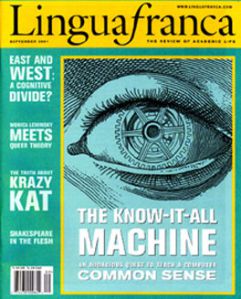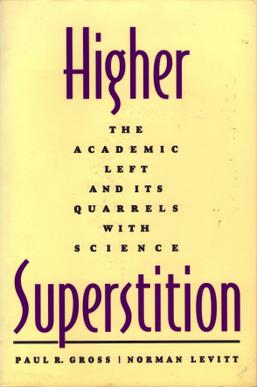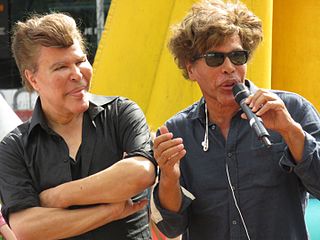
Postmodernism is an intellectual stance or mode of discourse characterized by skepticism towards elements of the Enlightenment worldview. It questions the "grand narratives" of modernity, rejects the certainty of knowledge and stable meaning, and acknowledges the influence of ideology in maintaining political power. Objective claims are dismissed as naïve realism, emphasizing the conditional nature of knowledge. Postmodernism embraces self-referentiality, epistemological relativism, moral relativism, pluralism, irony, irreverence, and eclecticism. It opposes the "universal validity" of binary oppositions, stable identity, hierarchy, and categorization.

Social constructionism is a term used in sociology, social ontology, and communication theory. The term can serve somewhat different functions in each field; however, the foundation of this theoretical framework suggests various facets of social reality—such as concepts, beliefs, norms, and values—are formed through continuous interactions and negotiations among society's members, rather than empirical observation of physical reality. The theory of social constructionism posits that much of what individuals perceive as 'reality' is actually the outcome of a dynamic process of construction influenced by social conventions and structures.

Lingua Franca was an American magazine about intellectual and literary life in academia.

Higher Superstition: The Academic Left and Its Quarrels with Science is a 1994 book about the philosophy of science by the biologist Paul R. Gross and the mathematician Norman Levitt.

Alan David Sokal is an American professor of mathematics at University College London and professor emeritus of physics at New York University. He works in statistical mechanics and combinatorics. He is a critic of postmodernism, and caused the Sokal affair in 1996 when his deliberately nonsensical paper was published by Duke University Press's Social Text. He also co-authored a paper criticizing the critical positivity ratio concept in positive psychology.

Fashionable Nonsense: Postmodern Intellectuals' Abuse of Science, first published in French in 1997 as Impostures intellectuelles, is a book by physicists Alan Sokal and Jean Bricmont. As part of the so-called science wars, Sokal and Bricmont criticize postmodernism in academia for the misuse of scientific and mathematical concepts in postmodern writing.
Paul Virilio was a French cultural theorist, urbanist, architect and aesthetic philosopher. He is best known for his writings about technology as it has developed in relation to speed and power, with diverse references to architecture, the arts, the city and the military. Virilio was a prolific creator of neologisms, most notably his concept of "Dromology", the all-around, pervasive inscription of speed in every aspect of life.

The Bogdanov affair was an academic dispute regarding the legitimacy of a series of theoretical physics papers written by French twins Igor and Grichka Bogdanov. The papers were published in reputable scientific journals, and were alleged by their authors to culminate in a theory for describing what occurred before and at the Big Bang.

In the fields of philosophy, the terms obscurantism and obscurationism identify and describe the anti-intellectual practices of deliberately presenting information in an abstruse and imprecise manner that limits further inquiry and understanding of a subject. The two historical and intellectual denotations of obscurantism are: (1) the deliberate restriction of knowledge — opposition to the dissemination of knowledge; and (2) deliberate obscurity — a recondite style of writing characterized by deliberate vagueness.

Social Text is an academic journal published by Duke University Press. Since its inception by an independent editorial collective in 1979, Social Text has addressed a wide range of social and cultural phenomena, covering questions of gender, sexuality, race, and the environment. Each issue covers subjects in the debates around feminism, Marxism, neoliberalism, postcolonialism, postmodernism, queer theory, and popular culture. The journal has since been run by different collectives over the years, mostly based at New York City universities. It has maintained an avowedly progressive political orientation and scholarship over these years, if also a less Marxist one. Since 1992, it is published by Duke University Press.
The science wars were a series of scholarly and public discussions in the 1990s over the social place of science in making authoritative claims about the world. Encyclopedia.com, citing the Encyclopedia of Science and Religion, describes the science wars as the

Andrew Ross, a Scottish-born social activist and analyst, is Professor of Social and Cultural Analysis at New York University (NYU). He has authored and edited numerous books, and written for The New York Times, The Guardian, The Nation, Newsweek, and Al Jazeera. Much of his writing focuses on labor, the urban environment, and the organisation of work, from the Western world of business and high-technology to conditions of offshore labour in the Global South. Making use of social theory as well as ethnography, his writing questions the human and environmental cost of economic growth.
Objectivity in science is an attempt to uncover truths about the natural world by eliminating personal biases, emotions, and false beliefs. It is often linked to observation as part of the scientific method. It is thus intimately related to the aim of testability and reproducibility. To be considered objective, the results of measurement must be communicated from person to person, and then demonstrated for third parties, as an advance in a collective understanding of the world. Such demonstrable knowledge has ordinarily conferred demonstrable powers of prediction or technology.
Criticism of postmodernism is intellectually diverse, reflecting various critical attitudes toward postmodernity, postmodern philosophy, postmodern art, and postmodern architecture. Postmodernism is generally defined by an attitude of skepticism, irony, or rejection toward what it describes as the grand narratives and ideologies associated with modernism, especially those associated with Enlightenment rationality though postmodernism in the arts may have their own definitions. Thus, while common targets of postmodern criticism include universalist ideas of objective reality, morality, truth, human nature, reason, science, language, and social progress, critics of postmodernism often defend such concepts. It is frequently alleged that postmodern scholars promote obscurantism, are hostile to objective truth, and encourage relativism to an extent that is epistemically and ethically crippling. Criticism of more artistic postmodern movements such as postmodern art or literature may include objections to a departure from beauty, lack of coherence or comprehensibility, deviating from clear structure and the consistent use of dark and negative themes.

What is Philosophy? is a 1991 book by the philosopher Gilles Deleuze and the psychoanalyst Félix Guattari. The two had met shortly after May 1968 when they were in their forties and collaborated most notably on Capitalism & Schizophrenia and Kafka: Towards a Minority Literature (1975). In this, the last book they co-signed, philosophy, science, and art are treated as three modes of thought.
Cultural studies is a politically engaged postdisciplinary academic field that explores the dynamics of especially contemporary culture and its social and historical foundations. Cultural studies researchers generally investigate how cultural practices relate to wider systems of power associated with, or operating through, social phenomena. These include ideology, class structures, national formations, ethnicity, sexual orientation, gender, and generation. Employing cultural analysis, cultural studies views cultures not as fixed, bounded, stable, and discrete entities, but rather as constantly interacting and changing sets of practices and processes. The field of cultural studies encompasses a range of theoretical and methodological perspectives and practices. Although distinct from the discipline of cultural anthropology and the interdisciplinary field of ethnic studies, cultural studies draws upon and has contributed to each of these fields.

The grievance studies affair was the project of a team of three authors—Peter Boghossian, James A. Lindsay, and Helen Pluckrose—to highlight what they saw as poor scholarship and erosion of standards in several academic fields. Taking place over 2017 and 2018, their project entailed submitting bogus papers to academic journals on topics from the field of critical social theory such as cultural, queer, race, gender, fat, and sexuality studies to determine whether they would pass through peer review and be accepted for publication. Several of these papers were subsequently published, which the authors cited in support of their contention.
Gabriel Stolzenberg was an American mathematician who taught at various academic institutions.












